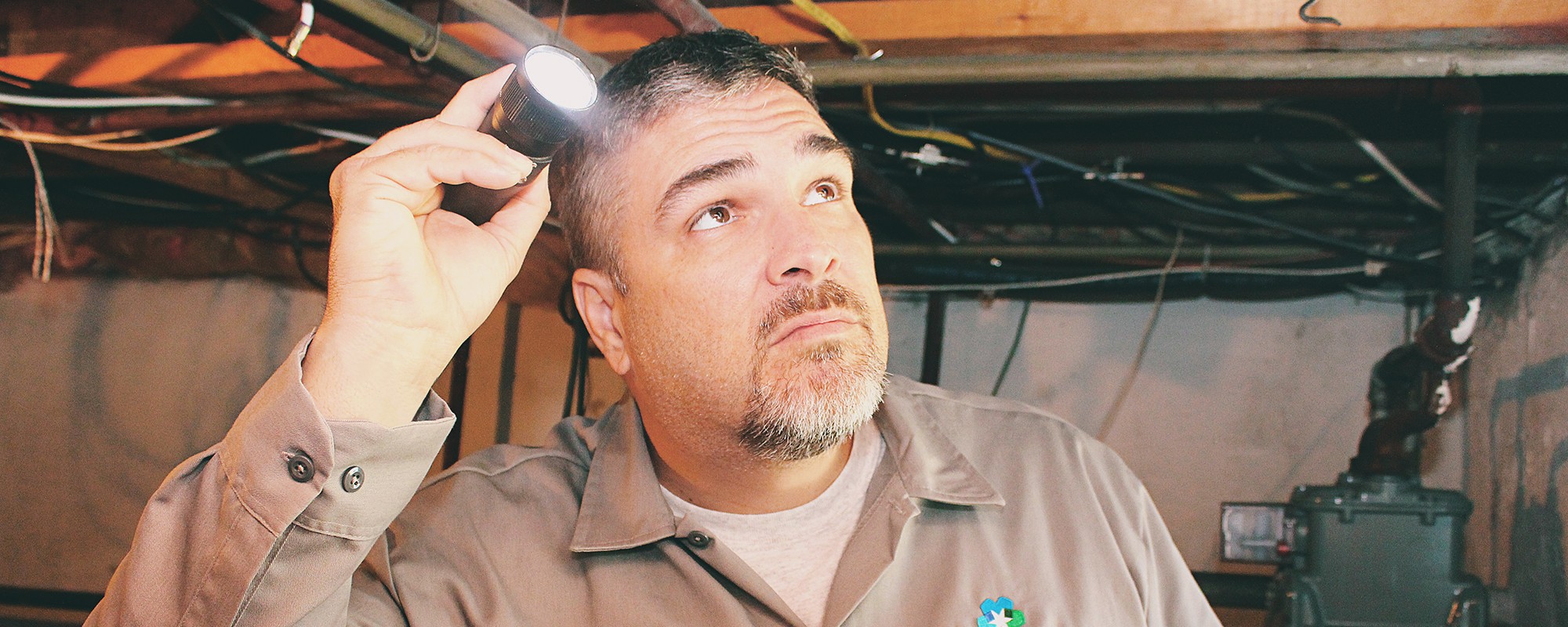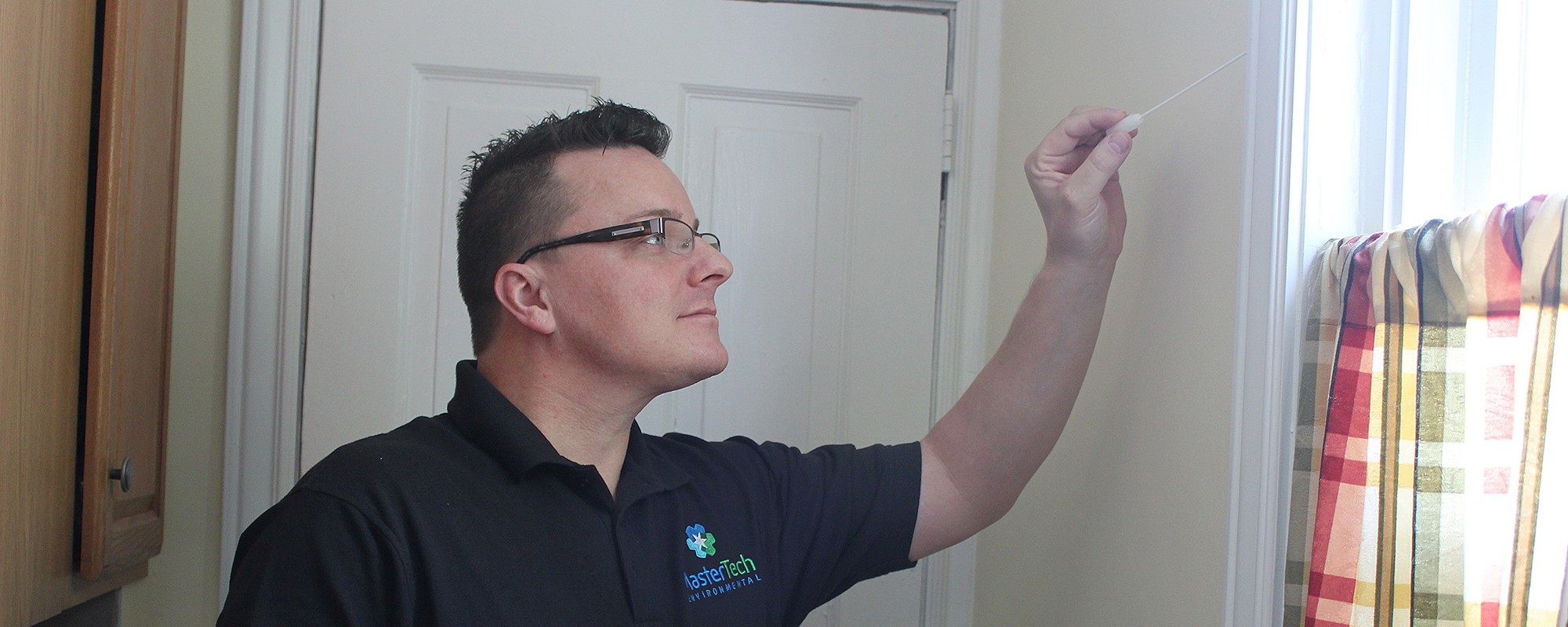
Unaddressed or undetected mold can quickly spread and contaminated previously clean, unaffected areas of your home and leave you with expensive property damage. In some cases, indoor mold growth is quite obvious and easy to identify. However, that is not always the case.
Widespread mold growth can exist in your NJ home with you even knowing about it. That is why it is so important for South Jersey homeowners to educate themselves about what causes mold, how to prevent it and how to spot mold signs.
What Can Cause Mold Growth in My NJ home?
Mold spores exist all around us. It is a natural component of our surrounding environment, so a truly “mold-free” environmental is not realistic. Our priority is to keep indoor mold levels within normal ranges for the surrounding environment. It is when mold has the opportunity to grow in excess, beyond normal levels, that is becomes a problem that needs special attention.

There are several factors that contribute to excess development of mold. Mold is usually a result of the right combination of factors: moisture, food source (i.e.: cellulose-based building materials) and warmth. It is important for New Jersey homeowners to understand the causes of mold in order to spot signs of a mold problem and prevent household mold. Since mold likes the same indoor temperatures that we are comfortable in and a great deal of our building materials are cellulose-based (i.e.: drywall, wood studs, paper finishings, etc.), these are not factors homeowners can control.
The major key to mold growth in homes in the South Jersey area is moisture. In the presence of an adequate moisture source, mold spores can germinate and spread in your home. Moisture from indoor humidity, condensation, poor ventilation, leaks, floods and various other water events can spark the start of a mold problem.

Keys Mold Signs Indicating Indoor Mold Growth
When it comes to dealing with mold development in your NJ home or business, time is very important. It only takes 24-48 hours for mold to develop once moisture is introduced to the environment. Early detection and action can mean preventing a widespread mold contamination, preventing serious property damage, and preventing an expensive mold remediation in New Jersey. If you pay attention to the mold signs and quickly address any issues right away, you can protect your property and avoid a great deal of stress.
Visible Mold Signs:
- Mold varies in color. It can appear black, white, grey, brown or green in color.
- Mold can be powdery in texture or appear in small splotches.
- Usually, mold will be accompanied by suspicious staining or discoloration.
Musty Odors Indicating a Mold Problem:
- Mold can easily develop in hidden spaces (in wall voids, under carpet, behind wallpaper, above ceiling tiles, etc.).
- Mold releases a pungent, earthy odor that can be rather off-putting.
- Musty odors can be a sign of hidden mold growth.
- Musty odors can permeate through flooring and walls. Where you detect the odors may not be where the mold is.
Unexplained Allergies Caused by Mold:
- Mold an potentially release mycotoxins that might make some people sick.
- Symptoms can range from very mild to very severe.
- Depending on the individual, mold can cause different symptoms:
- Allergy symptoms–sneezing, runny/stuffy nose, coughing, itchy eyes, etc.
- Asthmatic symptoms–coughing, wheezing, shortness of breath
- Irritant reactions– rashes, itchiness, swelling (similar to allergies)
History of Moisture Issues Creating an Environment for Mold Development:
- Signs of water damage can be the first indicator of possible mold development.
- Mold is often the result of moisture, from humidity or condensation to leaking or flooding.
- Moisture problems should be addressed immediately to avoid severe mold development.
- Water should be extracted, and the area needs to be thoroughly dried out immediately.
- Indoor humid levels should stay below 50%.
- Rooms should be well ventilated with sufficient air circulation to avoid moisture buildup.

Certified Mold Inspection South Jersey
If you are detecting mold signs in your New Jersey home or business, you should contact a trained and certified NJ mold inspector to get to the bottom of it. A professional mold inspector will have the necessary tools and knowledge to determine if a mold problem exists, how bad it is, what caused and how to effectively remove it.
Once you know that a mold problem exists in your New Jersey home, do not wait. Hire a reputable mold removal company in New Jersey that can safely and effectively remove the mold and restore a safe environment for you and your family. Be proactive in preventing mold growth in your home with moisture control tactics. In order to spot mold early in its development, take the time to routinely check your home for potential signs of mold growth.


